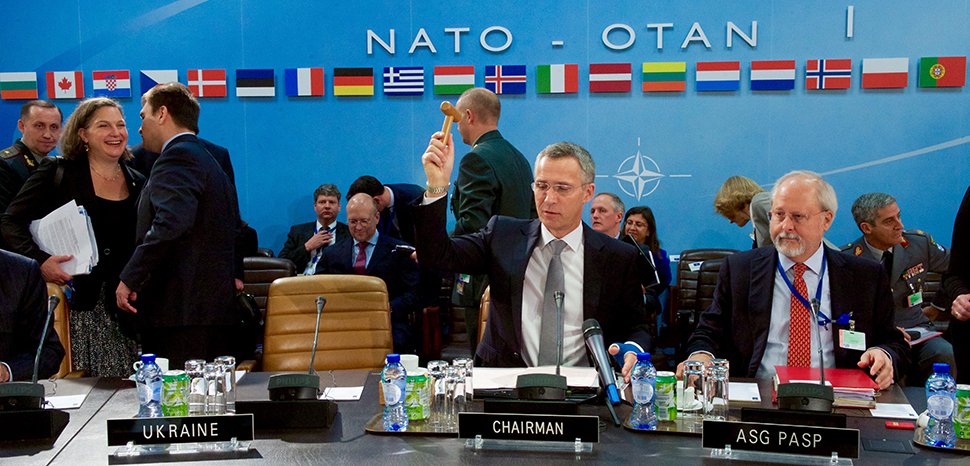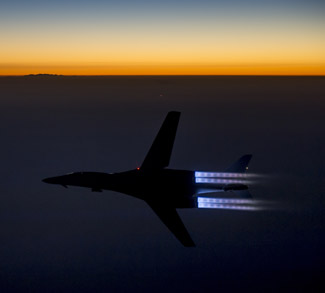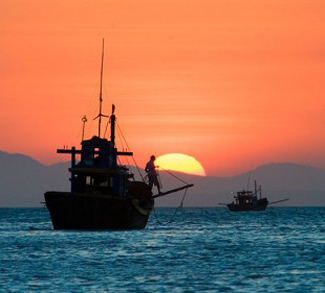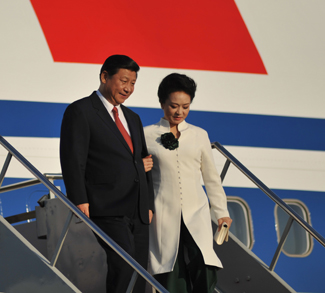As Ukraine’s counteroffensive gains steam and NATO leaders prepare for the Vilnius summit, Lithuania in July, Ukraine’s complicated future within the NATO alliance is once again front and center. For Ukraine and many of its most supportive allies from Poland to the Baltic states and the UK, it is important that NATO not repeat the mistakes made at the 2008 Bucharest Summit. At that summit, NATO declared that both Ukraine and Georgia will become members of the alliance at an unspecified time, without providing a Membership Action Plan (MAP) or formal accession framework. In a recent piece for Foreign Affairs, Ukrainian Foreign Minister Dmytro Kuleba was critical of the empty promises made to Ukraine at Bucharest, noting that ‘ambiguity is Putin’s best ally.’
Preliminary media reports suggest NATO will be hesitant to offer Ukraine a formal path to membership once again, particularly as the war with Russia still rages within its borders. Similar to how events unfolded at Bucharest, France and Germany are in favor of a ‘slower, more cautious approach’ that doesn’t alienate Russia, while Washington is likely to be much more cautious as well. However, much can change in the next couple of months, with Britain supplying longer range missiles capable of striking Crimea, Germany announcing its most significant aid package, and Russian forces continuing to suffer from supply shortfalls and infighting. Ukraine is well-positioned for its long-anticipated counteroffensive, with its allies from Berlin, Paris, London, and Warsaw all stepping up to the plate and delivering significant military hardware simultaneously.
Of all the former Soviet republics, Ukraine’s membership in NATO has long been the most controversial and threatening when viewed from Moscow. Ukraine stands in sharp contrast to the Baltic states which broke away quickly from Moscow in the 1990s to embrace Euro-Atlantic integration, joining NATO and the EU in 2004. Ukraine formed part of the USSR’s ‘Slavic core,’ an inseparable part of Russian identity and Moscow’s near abroad in the minds of Russian leaders since the collapse of the Soviet Union. The 2004 Orange Revolution was Ukraine’s first real post-Soviet revolution to break against the oligarchic class and attempt to forge closer ties with Europe. Since the 2013-14 Maidan Uprising and Russian annexation of Crimea, Ukraine’s Euro-Atlantic identity across all its regions from Lviv to Kharkiv and its serious contention for NATO membership has been solidified. In 2019, Ukraine amended its constitution to formally enshrine its commitment to join NATO, and a March 2023 poll from the International Republican Institute showed 82% of Ukrainians are in favor of joining the alliance.
Ukraine is unlikely to get everything it wants at the Vilnius summit, but it will be important for Kyiv to remember that most NATO member states are on its side. In Europe, and particularly on the thorniest of security issues involving Russia, nothing changes until it does, with events occurring gradually and then suddenly, in a similar vein as Hemingway’s famous dictum about bankruptcy. Ukraine may not be a NATO member for another 10 or even 20 years, but it has already enlightened the alliance and reinvigorated its spirit in innumerable ways. Foreign Minister Kuleba articulated well in his article what Ukraine can bring to NATO, in addition to what NATO brings to Ukraine. For Kuleba, this includes innovation in command and control, ingenuity, local initiative, and experience in countering hybrid threats and conducting information warfare. On May 17, Ukraine was officially admitted into the NATO Cooperative Cyber Defence Centre of Excellence in Tallinn, Estonia, a powerful symbol as its flag now flies directly next to those of NATO’s other member states.
Given the immeasurable benefits Kyiv brings to the alliance, combined with the strength of purpose NATO has shown since Russia’s invasion, there is no ‘brain death’ looming on the horizon as French President Macron famously feared during the Trump presidency. Rather there is a strategic vitality, pulling Europe together from west to east, guided by states small and large to face a common aggressor with no desire for cohabitation but only domination. The Ukrainians, just like the Baltic states, Poland, and many others, know the importance of safeguarding their security in order to prosper outside the shadow of their much larger neighbor. As NATO meets for its landmark Vilnius summit, it is time to legitimize Kyiv’s place in Europe as a nation amongst equals, one worthy of a seat at the most prestigious security table based on its many merits as a defender of the European order.
The views expressed in this article belong to the authors alone and do not necessarily reflect those of Geopoliticalmonitor.com.




